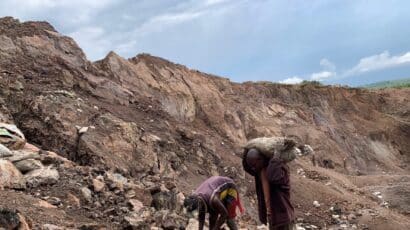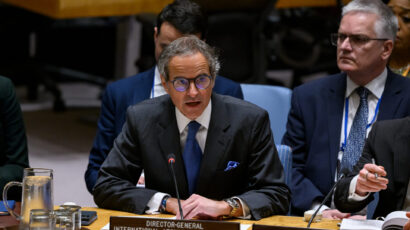Bright spots, big potential
By Jennie C. Stephens, Elizabeth J. Wilson, November 5, 2015
So far in this roundtable, Saleemul Huq and especially Sagar Dhara have portrayed the world's transition away from fossil fuels as both critically important and extremely daunting. We, the authors, agree—but we also see grounds for hope. This hope does not rest on technology alone. Rather, it flows from the social, cultural, and political changes that are occurring in the world's "bright spots—places where efforts to replace fossil fuels with renewable-based energy systems are already advancing rapidly. In such places, massive investments have been made in renewable technologies. The investments have been accompanied and supported by parallel changes in politics and public policy; in the planning and operation of energy systems; and in the ways organizations think about and ultimately use energy. In these bright spots, individuals, households, businesses, and communities are coming to understand the potential of renewable-based energy systems—and are shifting away from fossil-fuel regimes and existing political, cultural, and institutional norms.
In much of the world, to be sure, the legacy incentives and infrastructure that surround fossil fuels remain very much intact. And transitions toward more sustainable energy systems are proceeding at varying speeds in different places. Energy systems even in neighboring countries such Venezuela and Brazil, or Germany and Poland—or in adjacent US states such as Minnesota and North Dakota or Canadian provinces such as British Columbia and Alberta—are changing in dramatically different ways. But what accounts for the differences? They result not only from variations in natural resources and technologies but also from critical differences in politics, institutions, and social and cultural norms.
Dhara has made important points about challenges facing solar and wind power—their technological feasibility and their environmental impacts. But those challenges, though serious, will not prevent energy transitions. Rather, they highlight the importance of dynamic interplay between the evolution of technological systems and the evolution of social ones. In fact, the greatest challenge to energy transitions concerns whether political, institutional, and cultural changes can occur fast enough to support technological changes.
Dhara also argues that, to advance the goal of global carbon equity, the United States and Canada should reduce their energy consumption by 90 percent—and that other industrialized regions should reduce their consumption drastically too. There is a laudable idea behind Dhara’s proposal. But it's hard to identify a mechanism for facilitating energy-system changes on such a scale. In fact, a proposal such as Dhara's may even be counterproductive—when the scale of a challenge appears too daunting, people's tendency is simply to shut down. As the saying goes, the perfect must not become the enemy of the good. What's needed is to recognize and embrace the complexities of social change and support the multiple processes through which societies learn to change.
No one knows exactly how future energy systems will change and develop. Indeed, transitions away from fossil fuels are driven by a host of factors that go beyond climate change—the co-benefits of renewable-based energy systems include reduced air pollution, increased reliability for local energy supplies, and greater cost stability. In different places, these co-benefits are driving change in different ways. But as people and places navigate a multiplicity of energy pathways, it's important to acknowledge the instances in which learning and change are already happening. Thus optimism about energy transformations is justified—an optimism grounded not only in technology but also in the socio-technical changes that are accompanying renewable energy transitions. The linkages between social changes and technological changes furnish reason for hope. These bright spots highlight a broad potential for successful energy transitions and more sustainable energy systems.
Topics: Climate Change
Share: [addthis tool="addthis_inline_share_toolbox"]














